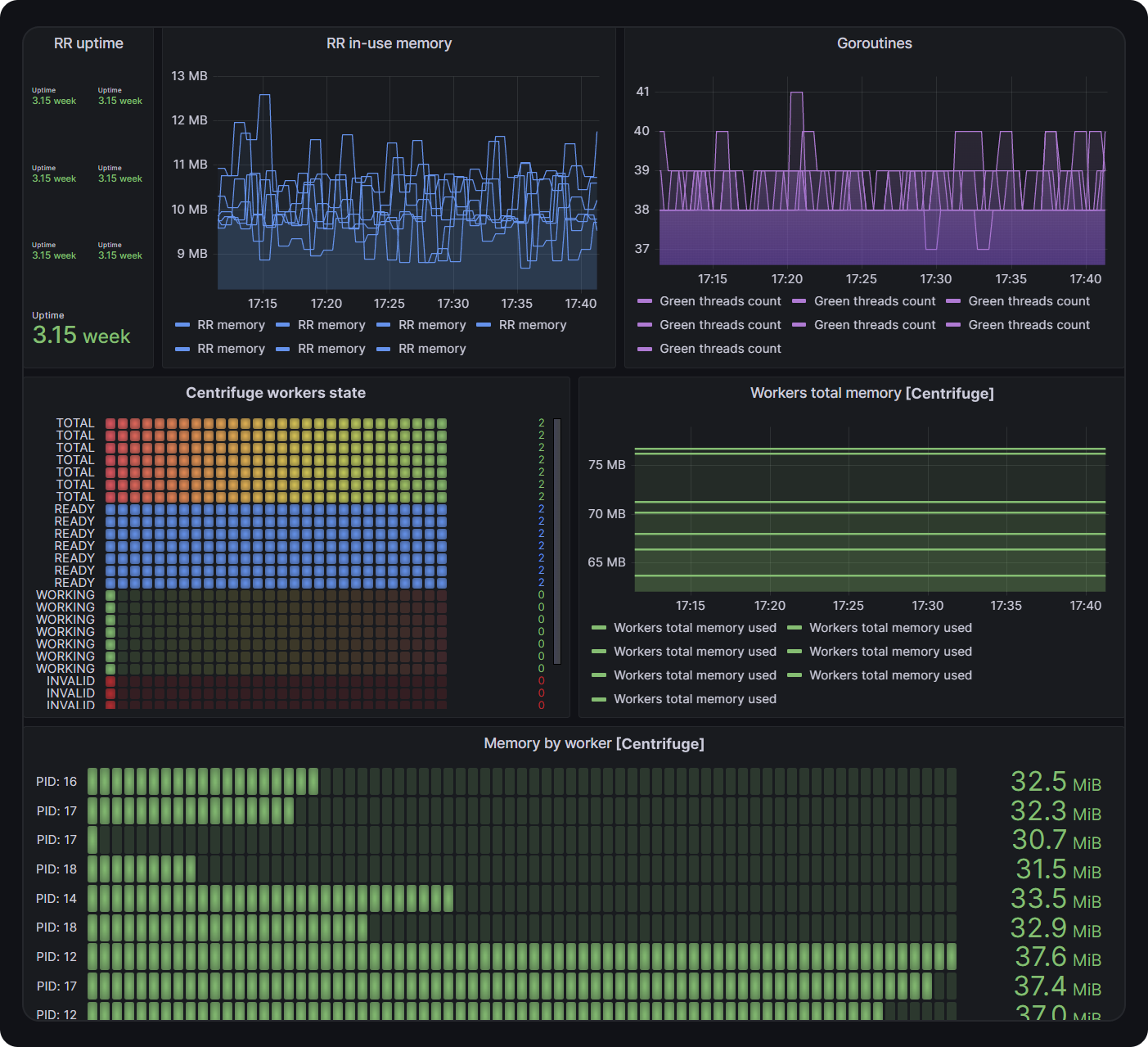Centrifuge (WebSockets)
PHP client
Installation
composer require roadrunner-php/centrifugoConfiguration
rpc:
listen: tcp://127.0.0.1:6001
server:
command: "php app.php"
relay: pipes
centrifuge:
# Centrifugo server proxy address (docs: https://centrifugal.dev/docs/server/proxy#grpc-proxy)
# Optional, default: tcp://127.0.0.1:30000
proxy_address: "tcp://127.0.0.1:30000"
# gRPC server API address (docs: https://centrifugal.dev/docs/server/server_api#grpc-api)
# Optional, default: tcp://127.0.0.1:30000. Centrifugo: `grpc_api` should be set to true and `grpc_port` should be the same as in the RR's config.
grpc_api_address: tcp://127.0.0.1:30000
# Use gRPC gzip compressor
# Optional, default: false
use_compressor: true
# Your application version
# Optional, default: v1.0.0
version: "v1.0.0"
# Your application name
# Optional, default: roadrunner
name: "roadrunner"
# TLS configuration
# Optional, default: null
tls:
# TLS key
# Required
key: /path/to/key.pem
# TLS certificate
# Required
cert: /path/to/cert.pemPHP worker example
Protobuf API
Proxy interface
RPC
Proxy events
Metrics

Last updated